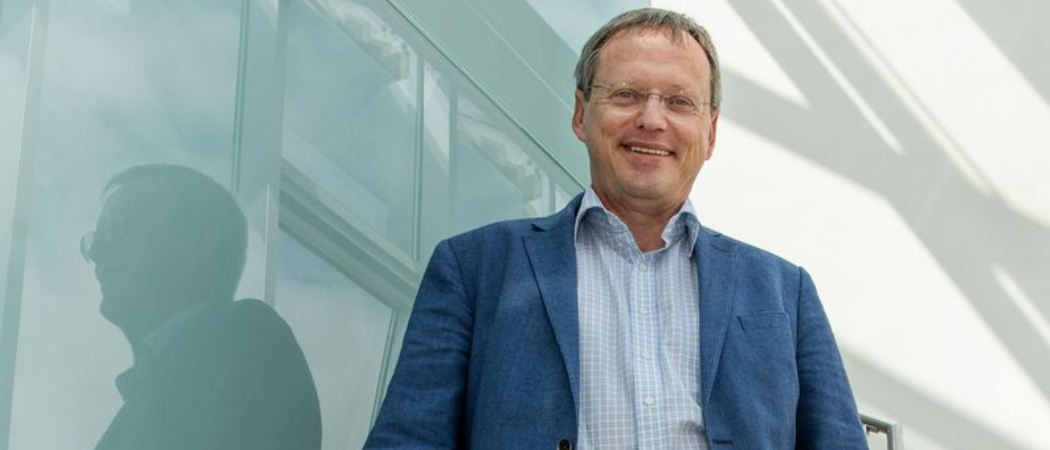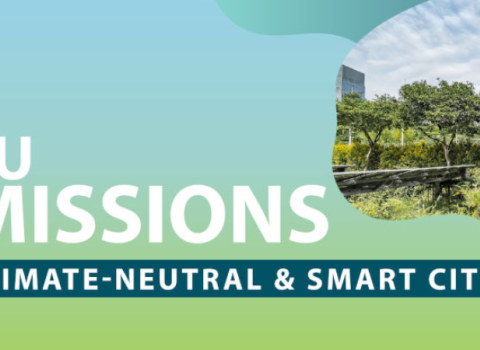To deliver on their ambitious climate and health promises, the objective-driven research projects require a change in policymaking culture across Europe, says Wolfgang Polt, who is spearheading efforts to promote transnational cooperation in support of the Missions

Wolfgang Polt, coordinator of the Transnational Cooperation on the Missions Approach (TRAMI). Photo: Joanneum Research / Schwarzl
The Horizon Europe Missions won’t deliver results without widespread change in how policy is made in Europe, says Wolfgang Polt, coordinator of the Transnational Cooperation on the Missions Approach (TRAMI), a project that runs a knowledge exchange network for the five Missions.
The Missions have ambitious, broad-sweeping goals, such as saving Europe’s waters and improving three million cancer-affected lives. To reach them requires not only research but also implementation. However, public administrators are hesitating over getting involved.
“That is one reason why I estimate this to take much more time: it needs a cultural shift in the way we are doing public administration,” Polt told Science|Business. “There are so many silos around and it's so hard to break them up, or to make people connect and work together, and channel funding.”
The Missions provide seed funding - €1.8 billion thus far – in a bid to mobilise continent-wide action to save Europe’s oceans, rejuvenate its soils, adapt to climate change, make 100 cities climate neutral, and saving and improving three million lives affected by cancer by 2030.
The ambition is set at EU level and adopted by regional and national authorities in cooperation with the private sector, to launch actions in support of each goal.
However, the model did not translate into reality in the first few years of the Missions. When the European Commission, which oversees the Missions at EU level, gave its first assessment in July it found the projects are on track, but they need more political and financial backing from public authorities and industry.
Polt says the Commission’s assessment is fair but that it’s too early to say how well they are doing. “If you really want to see this work through, it will take another five or 10 years,” he said.
Demand for action
The slow progress is not for want of trying. For many policymakers, adopting the Mission approach is no easy feat. Whilst rooted in R&D policy, the Missions demand action from ministries and public bodies dealing with health, climate, transport and urban planning. Many of them have no experience with research funding, especially in countries where R&I funding is concentrated in the hands of one dedicated ministry.
One way around this would be to root the Missions in sectoral policy instead of research. But it’s not as easy as, for example, moving the responsibility away from the research directorate in the Commission, which would simply shift the Missions from one silo to another.
Polt urges the Commission to be creative. “We might even think of completely new forms of funding instruments, for example, a fund and an agency run by different [Commission directorates] jointly,” he said.
Another stumbling block for the Missions has been an uneven adoption of the approach across the continent. Some countries have taken to the new approach with enthusiasm, like Polt’s native Austria. But many others, especially in the east of Europe, are standing on the sidelines.
Lack of resources for it is one reason, but the way the Missions were created has also led to resistance in the member states. For one, the Mission goals often overlap with existing national ambitions, many of them set before the start of the Horizon efforts in 2021.
“What we find is that these countries have set their targets, and they sometimes run counter to the ones that the EU has set,” says Polt. “It points to one of the basic problems that haunted the Missions from the very start: that the selection of the Missions and the goal setting was not really articulated with the national backgrounds [in mind].”
For this reason, for example, Vienna is not participating in the Cities Mission. It launched a similar programme that aims to make the city carbon neutral by 2040. A lot of political capital had been invested into the idea prior to 2021 and there was little appetite for a joint European push. Examples like this abound.
No one should expect transitioning 100 cities to net zero to be an easy task. “We experience on the side of the Commission the same problems that we see on the national level: there is a lack of capacity to deal with these issues,” says Polt.
But the show is on, and people are working hard to meet the goals. TRAMI, is bringing together Mission stakeholders to network and learn from each other. Next March, it will host a large event under the Belgian presidency of the EU, when the goal will be to draw the first outline of where the Missions stand.





 A unique international forum for public research organisations and companies to connect their external engagement with strategic interests around their R&D system.
A unique international forum for public research organisations and companies to connect their external engagement with strategic interests around their R&D system.